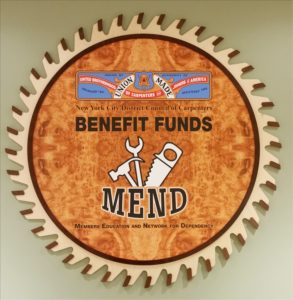Navigating Treatment for Substance Use and Mental Health in a Pandemic
Navigating Treatment for Substance Use and Mental Health in a Pandemic
January 18, 2021
 The Center for Disease Control (“CDC”) recently stated that 40% of adults have reported struggling with mental health, substance abuse, or suicidal thoughts related to COVID-19, with essential workers being the most affected group.[1] The University of Baltimore found that drug overdoses rose by almost 18%, and alcohol sales have increased by more than 25% during the pandemic.[2] There is no question that the same behaviors of social distancing, isolation, and quarantining that reduce the spread of the virus can lead to negative feelings that increase substance abuse. This has created a secondary crisis in the United States.
The Center for Disease Control (“CDC”) recently stated that 40% of adults have reported struggling with mental health, substance abuse, or suicidal thoughts related to COVID-19, with essential workers being the most affected group.[1] The University of Baltimore found that drug overdoses rose by almost 18%, and alcohol sales have increased by more than 25% during the pandemic.[2] There is no question that the same behaviors of social distancing, isolation, and quarantining that reduce the spread of the virus can lead to negative feelings that increase substance abuse. This has created a secondary crisis in the United States.
If you or a loved one is struggling with substance abuse and/or mental health issues and looking for help, it can be hard to know where to begin. There are a lot of predatory marketing practices and information online that are meant to entice you into pursuing expensive, substandard treatment for company profit. That is why it is important to look to us first if you need help!
The NYCDCC Welfare Fund’s Members Education & Network for Dependency (“MEND”) program is designed to help members and/or their dependents navigate treatment for substance abuse and mental health issues, and cut through confusion. The MEND Program provides confidential assistance from licensed clinicians through the following services:
- Referrals to appropriate level of treatment including inpatient and outpatient treatment for substance abuse and mental health,
- Case management and Coordination of Services with outside providers,
- Supportive services, and
- Education.
MEND provides the necessary support to ensure members and dependents receive appropriate level(s) of care so that there is no need to look for help alone! However, if you happen to look for treatment on your own, we want you to be aware of some common predatory marketing tactics:
- Misrepresenting insurance coverage. Members have both in and out-of-network benefits available to help cover the cost of treatment. Facilities may say they accept your insurance without disclosing the fact that they are an out-of-network provider or disclosing the full cost of treatment. When using out-of-network benefits, members are responsible for 30% of their treatment costs, as determined by the facility.
- Promises to not bill for certain expenses. In order to entice potential clients, marketers may offer to pay upfront costs for things like plane tickets or transporting clients to facilities. While these offers sound like you are getting a service for free, it is illegal for facilities to pay for these expenses without billing you. All offers should be signed in writing to ensure you understand the financial commitment you are making. Additionally, if things do not go as planned, you may be left to find your own way home.
- Suggesting large loans to cover the cost of treatment. Quality treatment does not need to be expensive. While there is typically some cost associated with treatment, paying more does not mean you will receive a higher quality of care.
- Hotline numbers that appear in online searches. Many hotline numbers earn money by selling calls or “sales leads” to treatment centers.
- Untrained call center staff. Call centers are often not staffed with clinically trained personnel that can make appropriate clinical recommendations.
- Marketers in online support groups. Online support groups are frequented by solicitors that are compensated for referring members to specific treatment facilities.
- Confusing Websites. Facilities may create purposefully confusing websites to encourage potential clients to participate in sales calls with marketing representatives.
The MEND program can be reached by phone at (212) 366-7590 or by email at MEND@nyccbf.org. Please remember that there is no shame in asking for help, that MEND operates under strict confidentiality restrictions, and that we are here to help you and your family.
[1] https://www.cdc.gov/mmwr/volumes/69/wr/mm6932a1.htm
[2] http://www.odmap.org/Content/docs/news/2020/ODMAP-Report-June-2020.pdf








